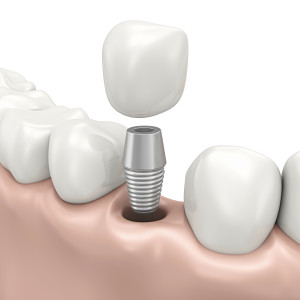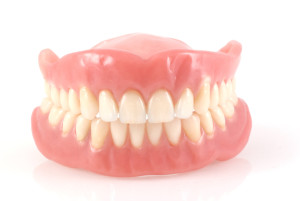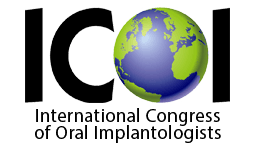The Most Popular Tooth Replacement Options
The three most common tooth replacement options are dental implants, removable dentures, and dental bridges. Here are three stories from Reger Family Dental patients, where each one chose a different tooth replacement option for a different reason. We hope that this information will help you choose one of these options to replace you own missing or damaged teeth. All of the names have been changed to protect patient privacy.
 Kevin – Dental Implants
Kevin – Dental Implants
Kevin was missing two of his front teeth after a biking accident. Since he was only missing a couple of teeth, he did not feel like dentures were a good option for him, and because he wanted a permanent option, he chose not to opt for a bridge. Because a dental implant is an artificial tooth root, capped with a natural-looking replacement tooth, Kevin decided this was the best option for him.
Dental Implant Benefits
Besides being the only permanent option, dental implants look, feel, and function just like real teeth. Additionally, this amazing tooth replacement treatment is the only one that can reduce or stop jawbone deterioration. Dental implants also need no extra oral hygiene steps and can be cared for just as you would your real teeth. Additional benefits include improved oral health, increased confidence, and enhanced overall health.
Dental Implant Drawbacks
One of the drawbacks for dental implants is that most dental insurance plans do not cover their cost. The process can also be significantly longer than other options that are done in just weeks. Dental implant placement requires multiple visits to a doctor’s office over the course of 3-6 months. And finally, supplementary procedures like bone grafts and tissue augmentation may be necessary for some patients to ensure than implants are successful. This can add extra cost and healing time to the procedure.
 Anita – Dentures
Anita – Dentures
Anita was missing most of the teeth in her upper jaw. Because she has a severe case of diabetes and does not want surgery, dental implants were not a good option for her. Additionally, her lack of surrounding teeth to use as anchors prevented her from choosing a dental bridge. As a result, Anita chose removable dentures to replace her missing teeth.
Denture Benefits
This option consists of a single row or whole arch of replacement teeth anchored in a pink or gum-colored base. For patients like Anita, dentures are an easy option at a reasonable price. She was also able to get a custom set made in just weeks, as opposed to months with dental implants. This allows patients to restore bite function without painful, expensive, or complicated surgery.
Denture Drawbacks
Compared to the other treatment options, dentures are probably the least comfortable option. Anita also admits that her dentures probably look much less natural than dental implants would. Additionally, dentures do not halt the process of deterioration that usually occurs in the jawbone when teeth are missing. This can ultimately result in a sunken facial appearance, premature wrinkles, and loss of muscle tone in the jaw and face. Anita says that she also has trouble speaking clearly sometimes and enjoying a few of her favorite foods.
 Daniel – Bridge
Daniel – Bridge
Daniel was missing three teeth in his lower jaw. Because he was only missing a few teeth, he did not feel like dentures were a good option for his specific needs. He had also recently had cancer treatment, so dental implants were not a good option for him. As a result, Daniel chose a bridge to replace his missing teeth.
Bridges are a common dental restoration option that can be used to replace one or more missing teeth by permanently attaching “a bridge” to surrounding teeth. In Daniel’s case, the natural teeth adjacent to the missing ones were filed down to provide adequate space for the replacement teeth. Now Daniel can smile, chew, and speak again with ease.
Bridge Benefits
Daniel found that a bridge was less expensive than dental implants, less invasive (no surgery was required to place the bridge), and was also quicker (could be placed in just a few days). He also learned that bridges present less risk to patients since parts can be replaced quickly and without any significant pain. This was an added benefit since he did not want to undergo surgery after recently getting chemotherapy.
Bridge Drawbacks
Once natural teeth have been ground down for anchors to a bridge, the basic structure of the tooth is compromised and the risk of future decay and/or root canal treatment are more likely. Additionally, special products and cleaners are needed to clean beneath the bridge and keep the teeth around it plaque free. Daniel admits that these drawbacks are inconvenient, but that a bridge was still the right option for his individual needs.
Come See Us Today To Discuss Your Tooth Replacement Options
With decades of training and experience, our staff is ready to serve our San Antonio, TX community with superior services and well-priced products. If you would like to know more about payment options or what makes a good candidate, please give us a call for more information or read through the rest of our specially designed infosite. Get started today on your own amazing smile transformation from Reger Family Dental.
Frequently Asked Questions
Is it easy to transition from dentures to a dental implant solution?
Dentures don’t provide essential stimulation to your jawbone and in some cases they can lead to or exacerbate oral diseases that erode your gums. This is why it may be necessary to correct deterioration if you’ve been wearing dentures for an extended period.
How long can I expect different types of restorations to last?
Bridges are another durable solution for missing teeth. Bridges can loosen or even fall out, but they’re easily tightened by a dentist. Like dental implants, bridges can last anywhere from twenty years to a lifetime with preventive dental care and regular check ups with Dr. Reger.
Dentures are the most fragile option, being subject to breaking due to excess pressure or falling out. The average lifespan of a pair of dentures is between seven and ten years.
What is the average cost of each restoration option?
- The average cost of a single tooth dental implant can range from $1,000-$3,000.
- Bridges have an average cost of $2,000-$3,000.
- Dentures are the cheapest option, ranging on average from $300-$500 per plate or $600-$1,000 for a full set.
We have financing options available to help your restoration better fit your budget.
What do I need to discuss with Dr. Reger before I choose a restoration?
- Medical history
- Allergies
- Surgical anxieties
- Budget
- Time frame
- Orthodontic needs
Discussing these points with Dr. Reger will be essential for determining the ideal restoration for you. Luckily, Dr. Reger and his team will give you all the information you need to make an informed decision.

 Kevin – Dental Implants
Kevin – Dental Implants Anita – Dentures
Anita – Dentures Daniel – Bridge
Daniel – Bridge


